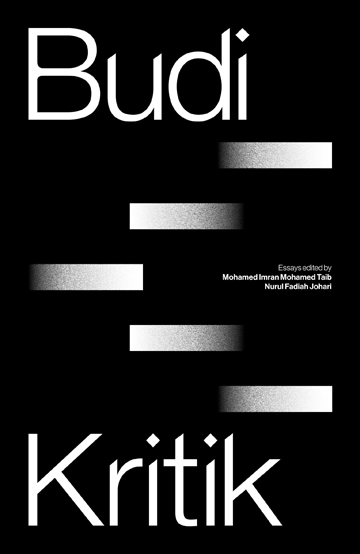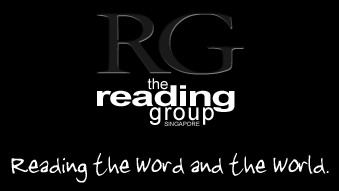Latest Publication

Synopsis
Why is it important to imbibe a thinking culture? What can contemporary Malays contribute by way of an active intellectual and social life towards reform and progress? Where are the loci of critical thought in Malay public life?
In a revealing book of essays edited by Mohamed Imran Mohamed Taib and Nurul Fadiah Johari, writers from various backgrounds—academics, researchers, community organisers, and social activists—offer insights and critical reflections into contemporary Malay society. These essays span wide-ranging fields—from culture to religion, identity to literature, faith to governance—with a shared objective: to promote the will to think and challenge dominant perspectives.
By actively engaging in the identification of problems in society, defining and diagnosing them, Budi Kritik offers ways to overcome these problems through deep thinking, cogent analysis, perceptive insights, and an unwavering commitment to lasting peace and progress. This is a necessary and urgent book for anyone asking where the Malay voices are in public discourse.
Reviews
These 22 thought-provoking essays from an array of Malay intellectuals with deep insights, have identified problems, defined them, made diagnoses and suggested possible solutions. They reflect a critical history of budi (intellect) and budaya (culture) while planting seeds of progressive ideas to transform the future of the 380 million inhabitants of the Nusantara region.
— Hoon Eng Khoo, Associate Dean (Academic Affairs) and Associate Professor of Science (Life Sciences), Yale-NUS College
This timely volume addresses important issues closely related to the Malay community in the Nusantara. Through different lenses, twenty-two authors from different backgrounds contributed to such critical discourse with one common commitment towards progress – i.e. to reject the social construct of the Malay community as homogenous, monolithic and fixed.
— Hoon Chang Yau, Associate Professor of Anthropology and Asian Studies, University of Brunei Darussalam
This compilation of incisive and succinct essays by writers of varied backgrounds from the Malay world of Singapore, Malaysia and Indonesia represents a contemporary attempt to revive and advance the tradition of Malay intellectualism first developed in the 19th century, in which reform and progress are key motivations and themes. The writers collectively discuss major aspects of Malay society, drawing from a diversity of Malay, Islamic, universal and humanistic ideas of reason, culture and values. Epitomising the ideals of promoting a thinking culture that will examine issues honestly, critically and constructively, this book is a valuable reference not only for Malays but for all who seek reform and progress in addressing major social issues of our time.
— Lai Ah Eng, Adjunct Senior Fellow, University Scholars Programme, National University of Singapore
A fresh, critical, perceptive and courageous compilation of young contributors’ reflections on vital socio-cultural issues affecting the Malays in the region in the midst of development and unprecedented change. Offers a commendable effort that calls for further engagement by all concerned in improving the condition of our pluralistic society in its various dimensions.
— Noor Aisha Abdul Rahman, Associate Professor & Head of Department of Malay Studies, National University of Singapore
Between the tendencies of Islamophobia and Islamophilia lies the rich field of the Malay intellectual tradition. This volume represents a return to the fountainhead of Southeast Asian Islam that is both dazzling in its erudition and tender in its passions. The mind and the heart unite in Budi Kritik, and the results are nothing short of a “blessing for all the worlds.”
— Mohan Ambikaipaker, Associate Professor of Critical Race and Postcolonial Studies, Tulane University
This is a laudable effort by young thinkers to promote a progressive outlook amidst the current rise of conservatism and extremism. It gives hope to readers that thinking is not dead in an age of populism.
— Ahmad Syafi’i Maarif, Former Chairman of Muhammadiyah
Budi Kritik is an important book for the Malay community in Malaysia because of our neglect of a critical introspection for so long. This has led to the many issues we face today including a dependence on authority and a blind acceptance of bad leadership.
— Marina Mahathir, Malaysian activist, Author of Telling It Straight
This book voices young thinkers’ concern towards the rise of conservatism and puritanism in the socio-religious life of the Malay Muslim community. They challenge the pervasive influence of political Islam and authoritarianism characterised by the pursuit for power, control and dominance. Using a critical discourse, the authors offer an antidote through promoting emancipatory ideas. They not only believe in the importance of democratic values, equality and diversity, but posit that Malay culture and the Islamic tradition contain rich legacies that uphold liberating values that are universal.
— Irfan Abubakar, Lecturer & Director of Centre for the Study of Religion and Culture, Syarif Hidayatullah State Islamic University
Rising above the anti-intellectualism that deadens much of Singapore’s public discourse, this collection of critical essays is an earnest plea for Malays and Muslims to be seen — and to see themselves — as inheritors of a culture and religion from which can be drawn inclusive, progressive values.
— Cherian George, Professor of Media Studies & Communication, Hong Kong Baptist University
• • •
ISBN: 978-981-11-7298-4
Published: 2018
Dimension: 130mm x 200mm
Extent: 260
Finish: Paperback
|

